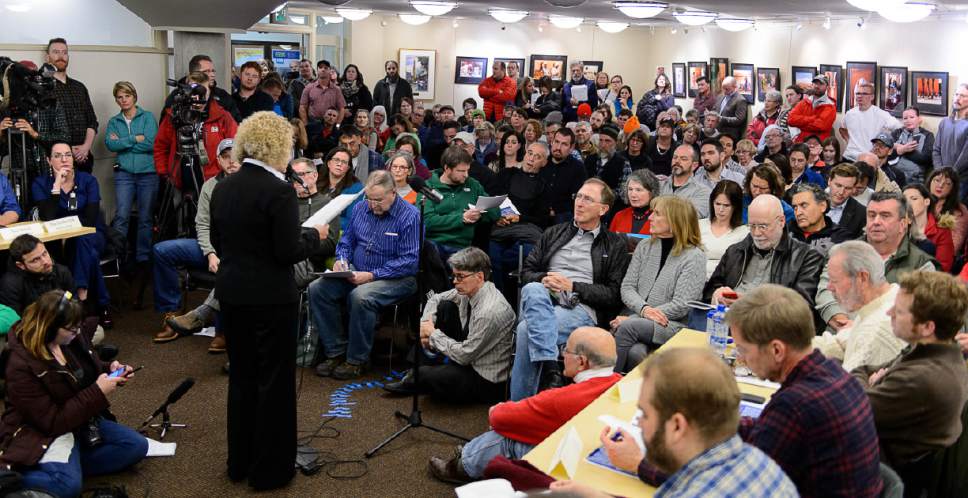This is an archived article that was published on sltrib.com in 2017, and information in the article may be outdated. It is provided only for personal research purposes and may not be reprinted.
Salt Lake City is doubling down on defending its secrecy of everything homeless shelter-related. And the State Records Committee has decided, reluctantly, that the state's open records laws are no help.
The entire process has been farcical. First, Mayor Jackie Biskupski and the City Council struggled to agree on how many and how big new shelters would be. The protracted, secret negotiations did not conclude until Utah House Speaker Greg Hughes and Salt Lake County Mayor Ben McAdams stepped in to help. Biskupski hid in her office while some poor government lackey ran back and forth.
Then came the decision of where those shelters would go. Again, city officials hid themselves behind closed doors. Neighborhoods at issue were outraged the process was so shrouded in secrecy. Why wouldn't they disclose possible sites? And where were the community meetings about those sites, as the Utah Prison Relocation Commission had done?
Transparency is essential in a process that has been so filled with controversy. The public needs to know the who, what, when, where and why of these decisions.
Yet Biskupski's chief of staff, Patrick Leary, denied releasing records of minutes and recordings from meetings held by city leaders to choose shelter sites. Leary's explanations are thin.
"First, the city may still seek to acquire one or more of the parcels discussed for other purposes, and its negotiating position should not be compromised by making recordings public," Leary's denial read. "Second, the public interest is not matched or outweighed by the necessity of allowing governmental entities to seek confidential advice from attorneys."
On the first point, the city overpaid for the properties it bought, one by at least $2 million and perhaps over $5 million. So maybe they need some fresh eyes on their financial decisions. That transaction was canceled, with a loss of $10,000 in earnest money. All that is an argument for an open process, not an invitation to repeat a closed one.
On the second point, GRAMA requires something more than the vague assertion of attorney-client privilege. Besides, even if city attorneys were present in these meetings, if any other county or state representatives or outside consultants were present, attorney-client privilege would be waived.
But when Sugar House neighborhood activist George Chapman appealed the city's ruling to the State Records Committee, that panel found itself going in circles trying to follow a state law that seems to allow the city to keep secret records that were created in secret meetings. That's too big a loophole, and the law should be changed.
Biskupski ran on a platform of increased government transparency. The city's process on homeless shelters has been weak, and a full public accounting of it would be good government. Especially since the process is not over.
As Biskupski said herself, "Insider, backroom deals like this undermine people's confidence in their government."



